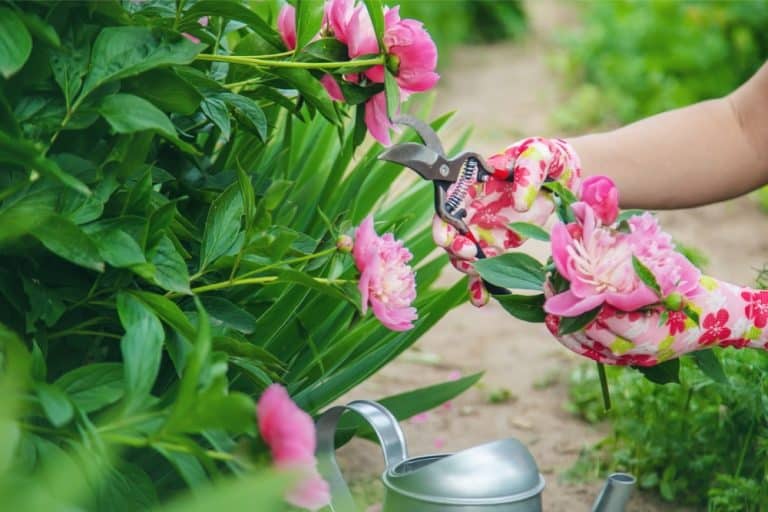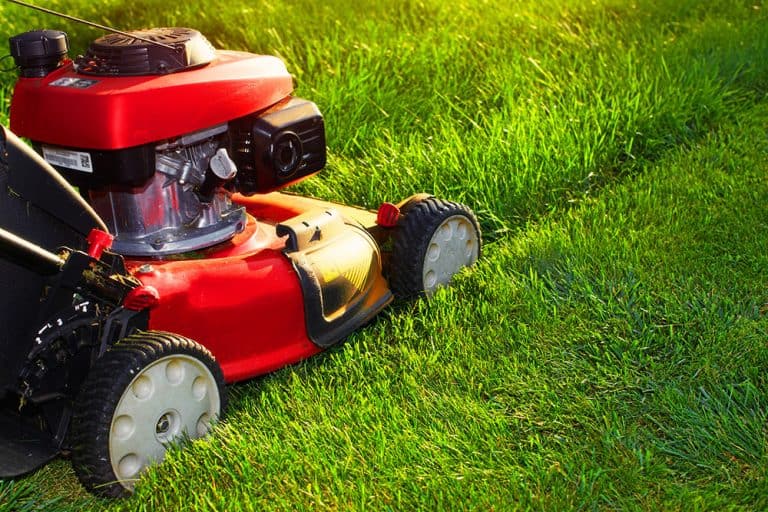15 Companion Plants For Asparagus To Help It THRIVE! [2023]
Are you interested in knowing about the companion plants for asparagus?
I find gardening to be extremely relaxing and also, quite satisfying!
Planting different types of plants is a delight and visually appealing too.
Besides the main plant, other plants help the main plant to grow healthy and strong.
They support the main plant by warding off harmful pests, providing shade from the sun, and attracting beneficial insects. They are called companion plants.
In this article, I will share some great companion plants for asparagus that you can plant in your garden.
At a glance, here is a list of the best companion plants for asparagus:
1. Strawberry
2. Horseradish
3. Tomatoes
4. Eggplant
5. Rhubarb
6. Basil
7. Catnip
8. Dill
9. Cilantro
10. Thyme
11. Marigold
12. Parsley
13. Petunia
14. Nasturtium
15. Spinach
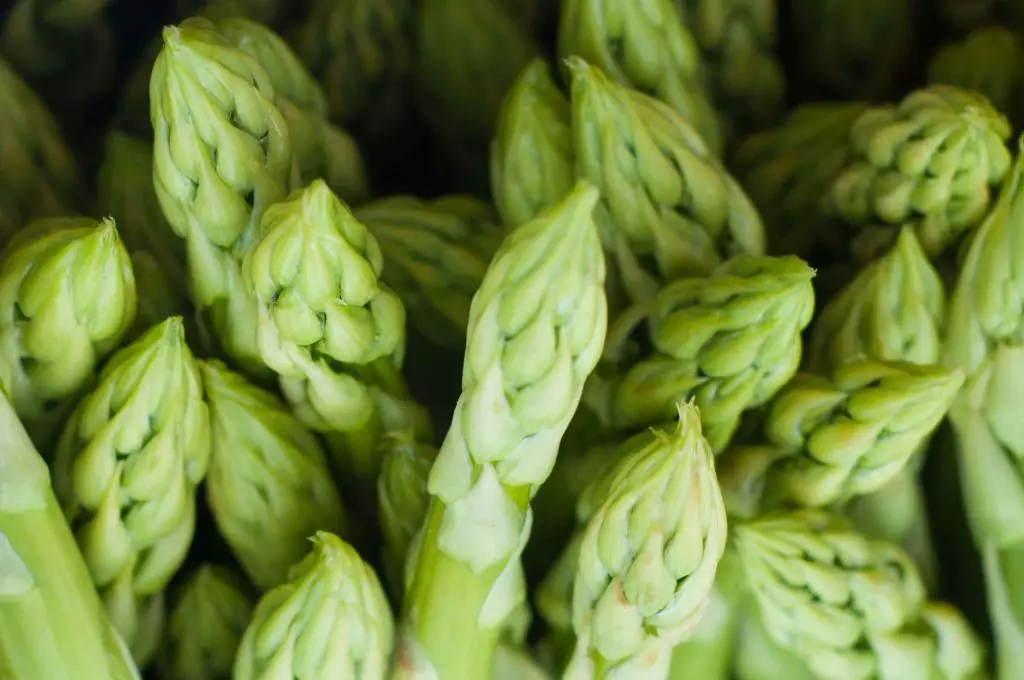
Affiliate Link Disclosure
Some of the links here are affiliate links, and I may earn if you click on them, at no extra cost to you. I hope you find the information here helpful.
Related Posts
- Companion Plants For Leeks: 17 Plants That Will Boost Growth
- 27 Companion Plants For Mint To Thrive (And Avoid!)
- 17 Companion Plants For Pumpkins-Help Them THRIVE!
15 Recommended Companion Plants For Asparagus
You might want to consider planting a few other crops nearby when you are planting asparagus. These additional plants can benefit your asparagus plants in various ways and can also deter pests and diseases.
Here are a few recommended plants to grow with asparagus:
1. Strawberry
Strawberries are a very popular and well-loved fruit all over the world. It is also a very useful plant to harvest along with asparagus plants.
Both strawberries and asparagus plants are mutually beneficial when planted together. Companion planting of asparagus and strawberries result in a robust harvest of both plants.
Strawberries protect the asparagus plants from harmful pests or insects. The strawberry plants have dense foliage that keeps the insects away from asparagus plants.
Strawberry plants provide much-needed shade to the asparagus roots that keep them cool even during hot sunny days. This enables the asparagus plants to grow stronger and faster as well.
The asparagus plants protect the strawberry plants from high, strong winds and similar harsh weather conditions. The tall stems of the asparagus plants act as a windshield and shield the shorter strawberry plants.
Thus, both plants are great companion plants that help each other to grow stronger.
2. Horseradish
Due to their comparable growing conditions, asparagus and horseradish are frequently grown together. The Brassicaceae family, which also comprises mustard, broccoli, and cabbage, includes horseradish as a member species.
The ideal conditions for this perennial herb are full light and well-drained soil. If left unchecked, horseradish, a fast-growing plant, will swiftly take over a garden plot.
For this reason, it is advisable to grow horseradish separately from other vegetables on a bed or container. Horseradish can aid in warding off pests. It enhances the health of the asparagus plants when it is cultivated close to them.
3. Tomatoes
There are many different ways to cultivate tomatoes, which are a common crop in many gardens. Tomatoes that are cultivated next to asparagus help ward off pests like the tomato hornworm, which attacks asparagus plants.
Asparagus and tomatoes both benefit from a well-drained soil and abundant sun. Growing them together can help keep problems under control because they are also resistant to many of the same diseases and pests.
4. Eggplant
Consider including eggplant on your list of companion plants if you plan to grow asparagus in your garden.
There are many similarities between asparagus and eggplant that make them a wonderful combination.
They both belong to the nightshade family, hence their growing requirements are comparable. Asparagus is a cool-weather crop, but eggplant is a warm-weather crop, so their growing seasons are complementary.
Asparagus can benefit from the pest and disease resistance of eggplant. Pests are physically barred from accessing the asparagus plants by the big leaves of the eggplant.
A chemical released by the eggplant also deters pests like aphids and whiteflies, which can harm asparagus plants.
5. Rhubarb
Asparagus and rhubarb are frequently regarded as companion plants. Although the growth of the two plants does not necessarily depend on one another, they can complement one another in a variety of ways.
For instance, asparagus may provide shade and support for rhubarb while rhubarb can assist asparagus to survive fungal diseases.
Both plants can also be grown without pesticides and require only moderate amounts of maintenance.
Overall, combining the growth of rhubarb and asparagus will result in a more beautiful and fruitful garden.
6. Basil
Asparagus and basil are wonderful gardening partners. In addition to helping to keep pests away, it can also help to make asparagus taste better.
Basil is a plant that can be cultivated in most climates and is very simple to grow. Additionally, it is a herb with a broad range of cooking use.
7. Catnip
In most regions, catnip is a tiny herb that is simple to grow. It can be used as a herbal tea or as a salad dressing.
Because it deters the white cabbage moth, catnip is a fantastic companion plant for asparagus.
Additionally, it has a strong odor that could also help to keep some garden pests away. Catnip is a useful plant and simple to grow.
8. Dill
For asparagus, dill is a superb companion plant. Dill can help asparagus plants stay healthy and pest-free by just being planted next to them.
Other advantages of dill include luring bees and other pollinators, enhancing the flavor of asparagus, and boosting crop yields.
9. Cilantro
Asparagus and cilantro are frequent companion plants. Asparagus grows better and is considered to be more pest-resistant thanks to cilantro.
10. Thyme
The natural scent of Thyme keeps harmful insects away from the asparagus plant. Thyme is evergreen and grows very low thus providing a good ground cover for asparagus.
11. Marigold
Asparagus and marigolds make excellent planting companions. They keep both flying and crawling pests away with their pungent odor.
Marigolds planted close to asparagus help shield it from insects like slugs and beetles.
They attract beneficial insects that will destroy unwanted pests as well as help in the avoidance of some pests.
They resist pests like nematodes by releasing a phytotoxin. Marigolds are a lovely addition to any garden and are simple to grow.
12. Parsley
As a frequent asparagus companion plant, parsley is a biennial herb. Together, these plants can increase asparagus production and quality.
Additionally, parsley can aid in preventing pests and illnesses from harming asparagus. This herb is a terrific addition to any garden because it’s simple to cultivate and manage.
13. Petunia
Asparagus and petunia make excellent companion plants. The petunia gives the asparagus nourishment, and the asparagus shields the petunia from pests in their symbiotic relationship.
Additionally, the petunia draws beneficial insects that assist in pollinating the asparagus blossoms.
14. Nasturtium
The Peruvian native Nasturtium (Tropaeolum majus) is an annual blooming plant in the Tropaeolaceae family.
The flowers blooming on protruding stalks above the leaves are referred to as “trophies” by the botanical name Tropaeolum.
Nasturtium, Indian cress, and monk’s cress are some of their common names.
In many temperate regions, including Europe, Asia, New Zealand, and North America, it has become a common ornamental plant and flower in gardens.
Nasturtiums are regarded as good companion plants for asparagus for several reasons.
Their fast-growing vines can shade asparagus plants during the sweltering summer days, and they are believed to aid in deterring destructive insects like whiteflies and aphids.
15. Spinach
Spinach is a good companion plant for asparagus as it does not take up too much space. Additionally, many of the pests that trouble asparagus plants are known to be repelled by it.
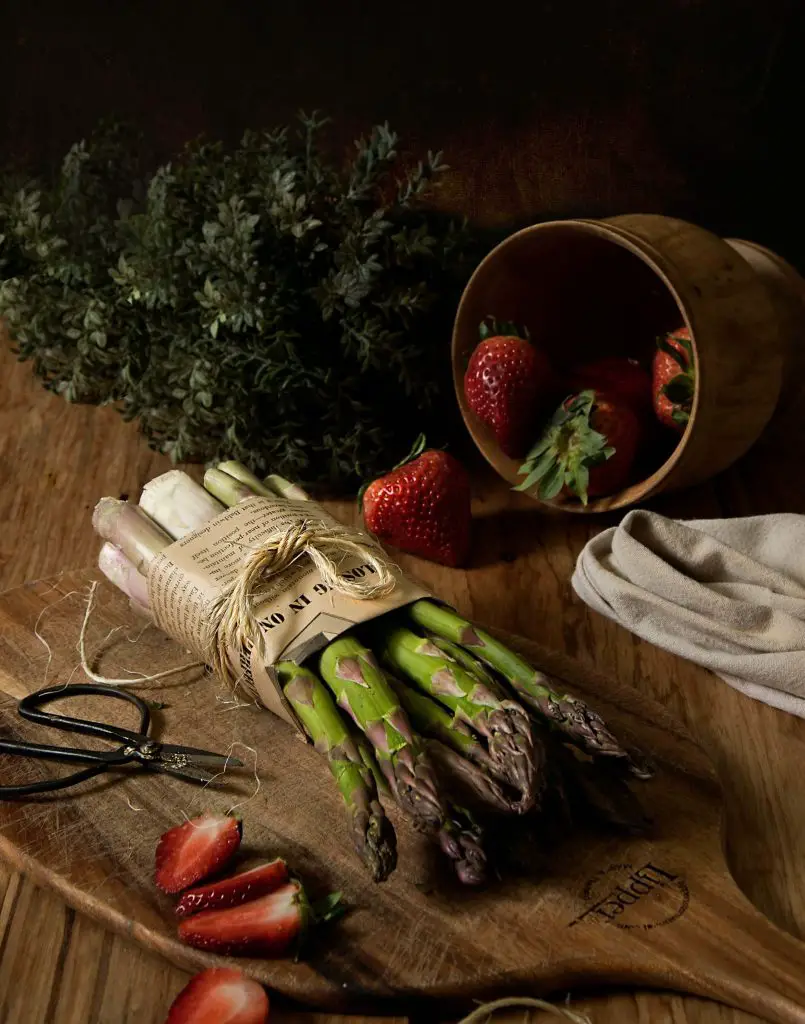
Related posts
- 17 Companion Plants For Kale & What To Avoid!
- 25 Companion Plants For Sweet Potatoes To Help Them THRIVE!
- 25 Companion Plants For Rhubarb, Which to Avoid & Growing Tips!
What Are Companion Plants?
Asparagus is a tasty and healthy food that is simple to grow in a backyard garden. Asparagus is a perennial plant, which means it will grow year after year with very little maintenance from the gardener.
A further benefit of asparagus is that it is a vegetable with a wide range of cooking possibilities.
Making the appropriate companion plant selections is one of the secrets to growing strong asparagus plants. Gardeners utilize the method of companion planting to select plants that will complement one another when they are grown together.
While some can enrich the soil with nutrients, other companion plants can aid in pest deterrence. Others still might support or shade climbing plants.
It’s important to think about the benefits you want your companion plants for asparagus to provide when choosing your option plants.
Why Asparagus Needs A Companion Plant
A perennial plant called asparagus makes edible spears. The spear-producing stage of the asparagus plant’s life cycle takes three years, and the plant can live up to 20 years.
The asparagus plant won’t start producing spears again until the following year after it has been picked.
Because asparagus does not make its nourishment, it needs a companion plant. For nutrients and moisture, the asparagus plant depends on the roots of other plants.
Because it protects and shades the asparagus plant, companion plants are also necessary for asparagus.
The asparagus plant would be more vulnerable to wind and sun damage if it didn’t have a companion plant. Since asparagus is a perennial plant, it grows afresh every year.
Although it won’t grow in the winter, it will in the spring and summer. Before the plant produces new growth, asparagus spears are harvested in the spring.
On the other hand, asparagus roots can be grown with other plants as companion plants. Since it is a native of the Mediterranean, companion planting of asparagus has been grown there for a very long time.
Asparagus was first cultivated by the ancient Greeks, according to legend. Because it was difficult to cultivate and needed a lot of space, asparagus was a delicacy only enjoyed by the wealthy.
The greatest plant to grow alongside an asparagus plant is one that will enhance soil quality and moisture retention.
The following plants make excellent companions: radishes, turnips, lettuce, carrots, and beets.
Companion planting for asparagus will deter pests like aphids away from your asparagus plant thanks to the smell of these plants.
What Not To Plant With Asparagus
As important as it is to know what to plant with asparagus, it is equally important to know what not to plant near asparagus.
This is because planting certain plants near asparagus will stunt its growth and may even kill the plant. These are bad companion plants for asparagus.
Here are three plants to avoid planting near asparagus:
1. Alliums
Alliums like onions take a long time to grow and absorb a lot of nutrients. As a result, growing asparagus close to plants like chives, onions, or garlic may cause stunted growth.
2. Potatoes
Potatoes compete with asparagus and may disturb or harm its root structure since they have deep roots and use the same soil depth as asparagus.
3. Carrots
If grown too close to asparagus, carrots may compete with it due to their long taproots. Moreover, some asparagus companion plants, like dill, don’t grow well with carrots.
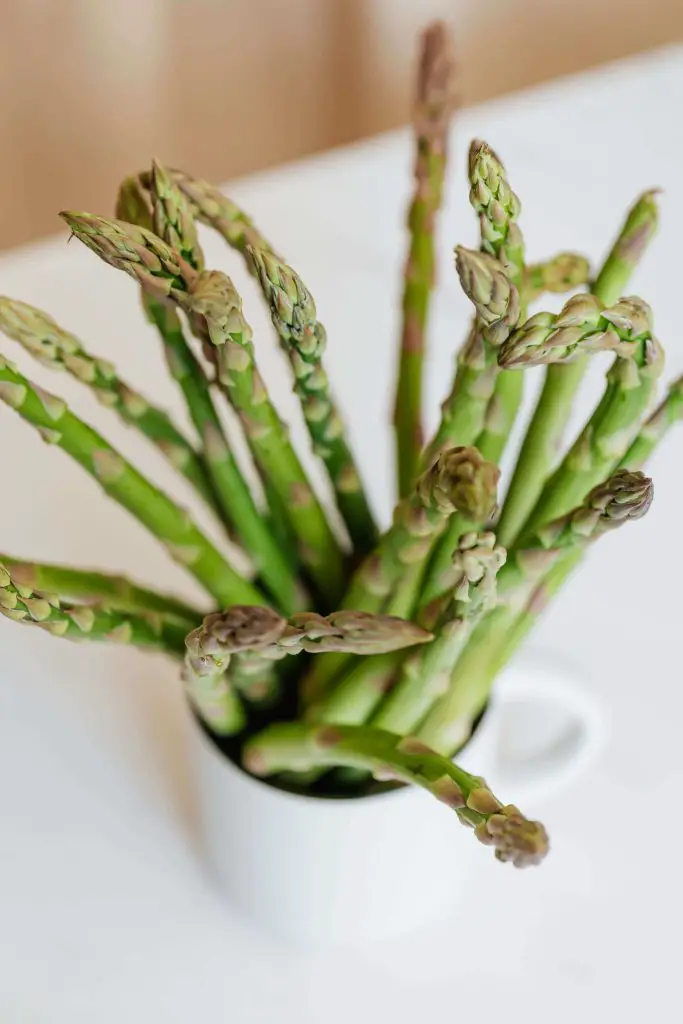
FAQs On Companion Plants For Asparagus
What’s A Good Companion Plant For Asparagus?
Comfrey, coriander, and dill are some good companion plants for asparagus. These herbs deter insect pests like aphids, spider mites, and other detrimental insects. Crops like beets, lettuce, and spinach can be planted between the asparagus rows.
Can I Plant Carrots Next To Asparagus?
Some people wonder whether they can plant carrots next to asparagus. Carrots will not successfully grow with asparagus because they require deeper roots too. This will clash with the asparagus roots which also go deep. Carrots also don’t grow well when herbs like dill are planted near asparagus plants.
Can I Plant Marigolds With Asparagus?
Can I plant Marigolds with asparagus? Gardeners are aware that marigolds are good flowers to have around. They deter harmful insects like beetles, aphids, nematodes, and whiteflies. So you can plant marigolds with asparagus.
Asparagus is a tasty, low-maintenance vegetable that is ideal for the backyard garden. Although growing asparagus is quite simple, there are a few things you can do to guarantee a good harvest.
Choosing the appropriate companion plants is one of the most crucial things you can do. As seen above, there are many companion plants for asparagus. These plants enrich the soil with nitrogen, which asparagus likes.
A tasty and healthy vegetable, asparagus can be eaten fresh, tinned, or frozen. Companion plants ensure that the asparagus plants are shielded from harmful insects and produce a good, healthy harvest.
Related Posts
- 23 Companion Plants For Sage & What To Avoid! [2023]
- 13 Companion Plants For Turnips: Best and Worst! [2023]
- 27 Companion Plants For Basil, The Best and Worst! [2023]
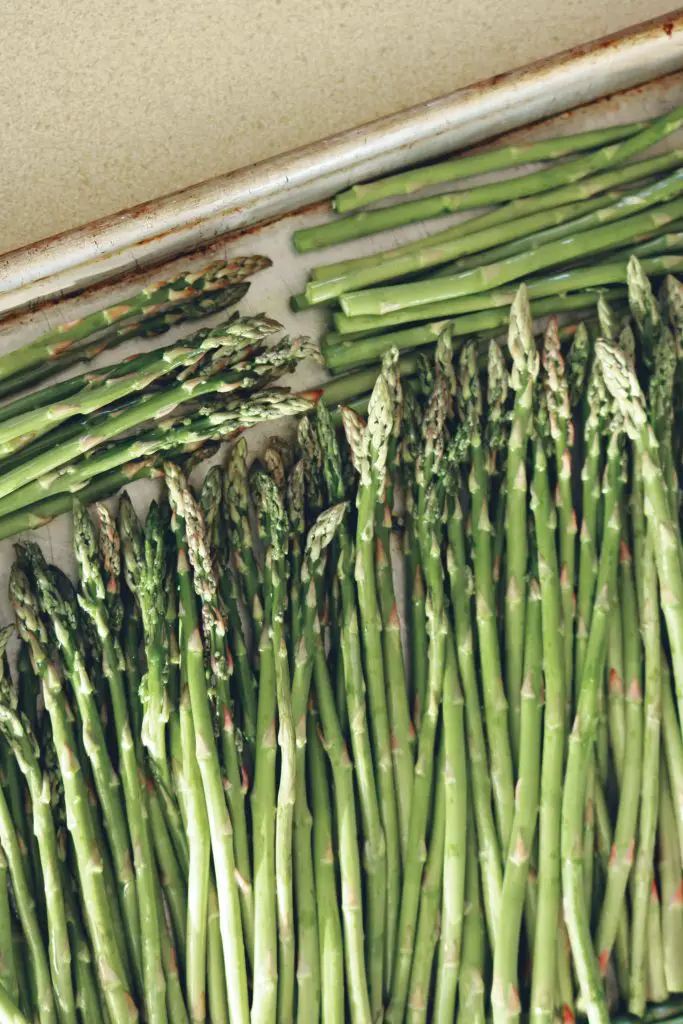


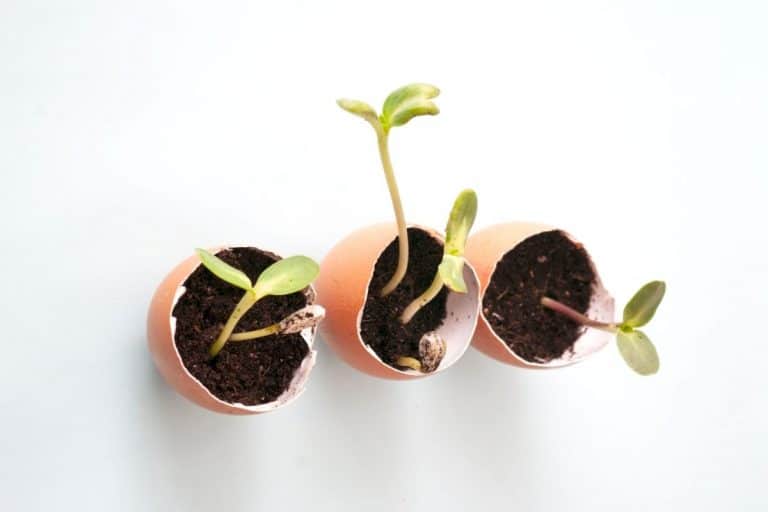
![27 Plants That Don’t Lose Leaves In Winter! +Growing Tips [2023]](https://aboveandbeyondgardening.com/wp-content/uploads/2022/10/Plant-that-doesnt-lose-its-leaves-in-winter-11-768x512.jpg)
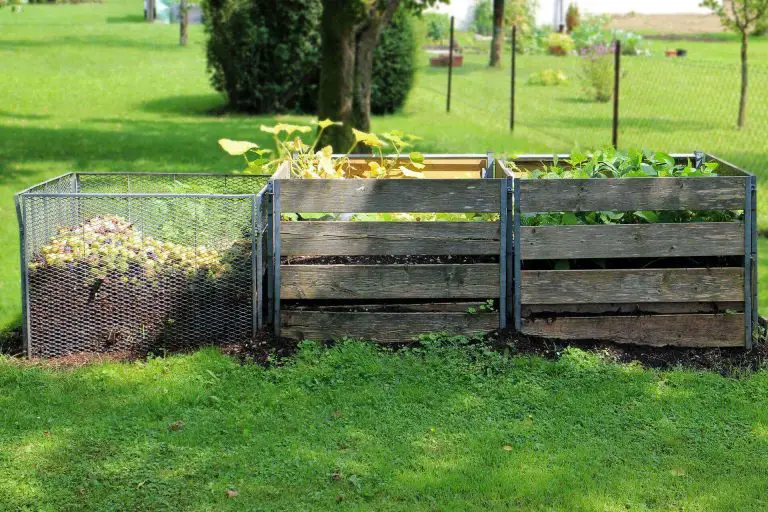
![When To Pick Carrots [+ Harvesting Tips!]](https://aboveandbeyondgardening.com/wp-content/uploads/2021/10/When-To-Pick-Carrots-768x512.jpg)
